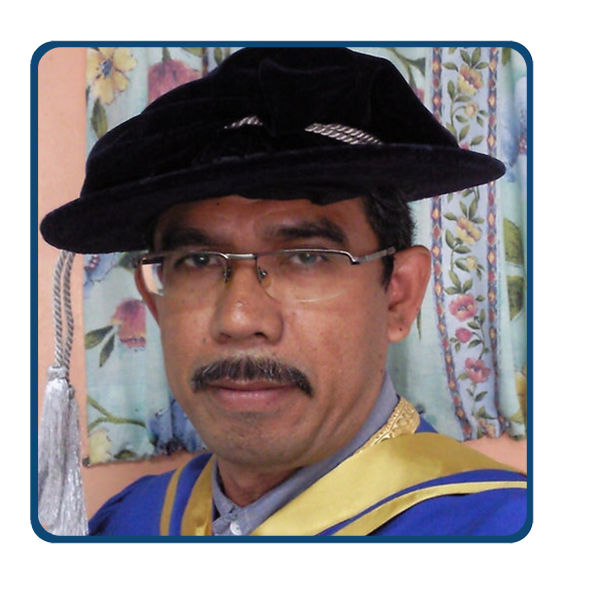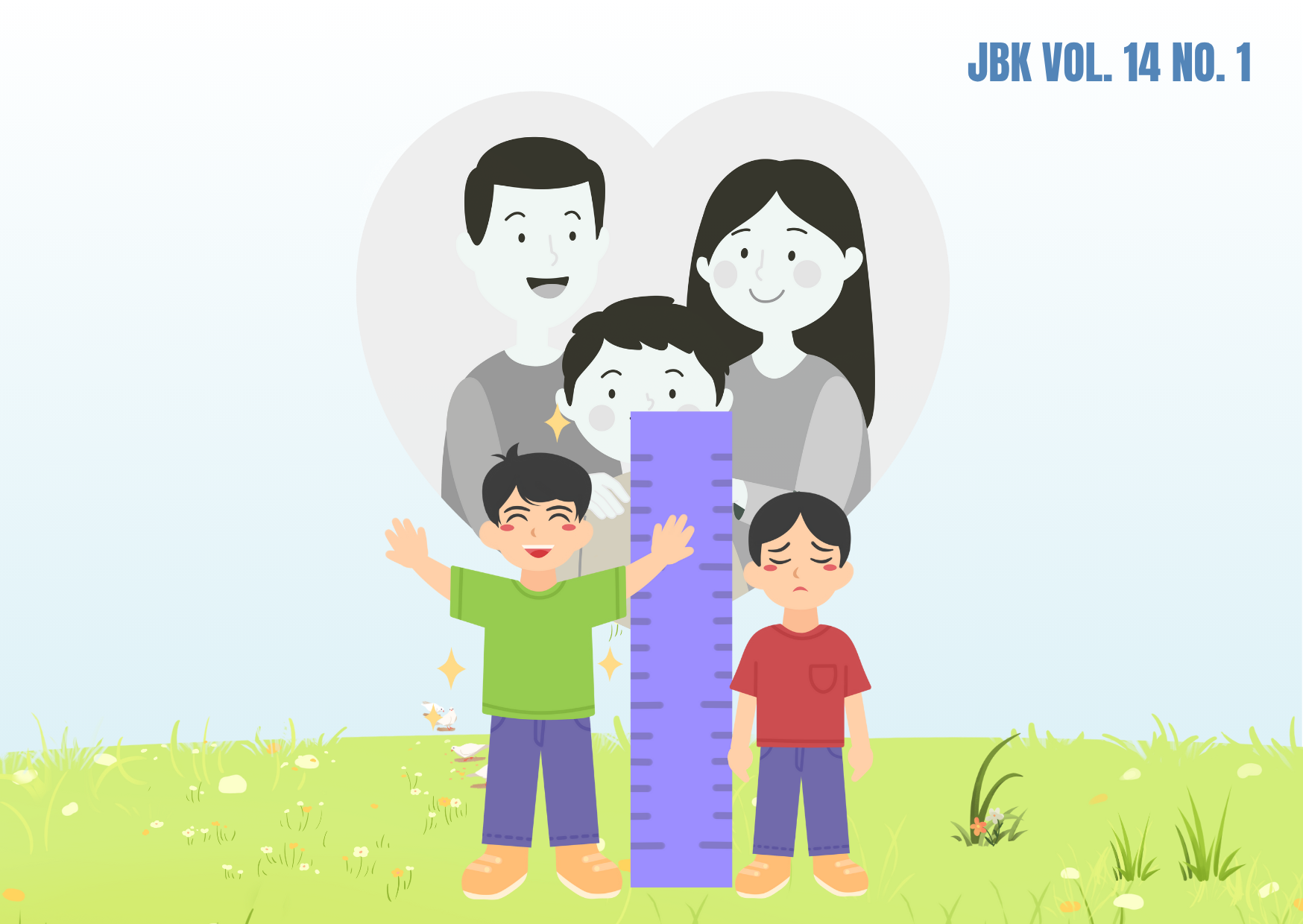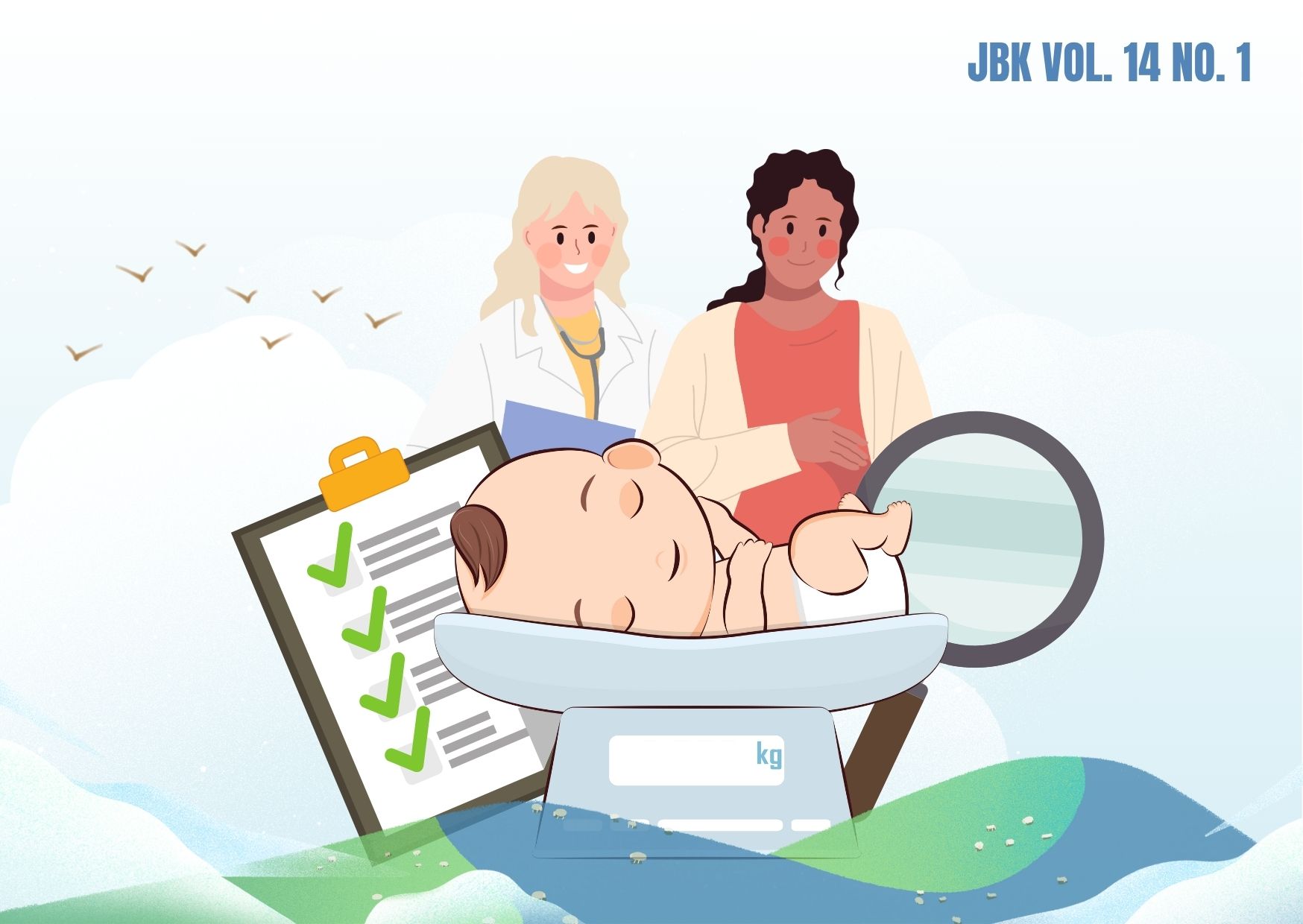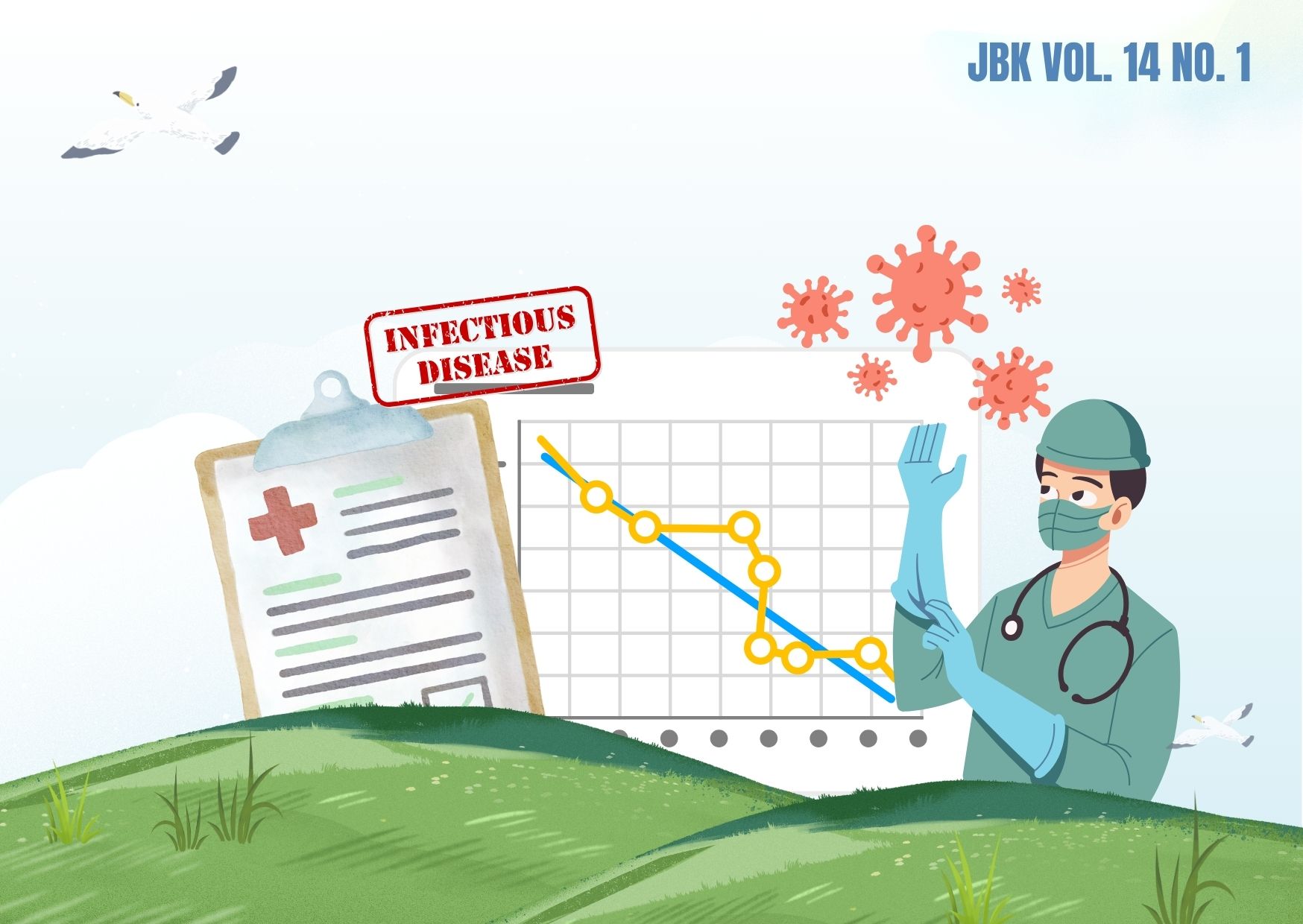FERTILITY AND PREGNANCY DURING THE PANDEMIC AT THE DAYAK MERATUS TRIBE
Fertility rate in South Kalimantan in 2017 is the same as Indonesia’s in 2.4. This figure is below the target figure for the 2020-2021 National Medium-Term Development Plan (Rencana Pembangunan Jangka Menengah Nasional/RPJMN) in 2.1. This study aims to determine the factors affecting fertility and pregnancy which occurred during the pandemic in women of childbearing age (Wanita Usia Subur/WUS) of the Dayak Pitap tribe living in the Meratus Mountains, Ajung Village, Tebing Tinggi District, Balangan Regency, South Kalimantan Province. This study uses a quantitative approach with a survey method. The research sample taken was 70 respondents using the quota sampling method with the simple random sampling method. Data processing and analysis was carried out in three stages, to be specific univariate analysis, bivariate with Chi-square statistical test, and multivariate analysis using binary logistic regression model. The results of the analysis show that women of childbearing age from the Dayak Meratus/Dayak Pitap tribe who are under 35 years old and have finished elementary school are 24.4% more likely to have 2 children. Therefore, it could be concluded that age and level of education affect the fertility.
Arsyad SS, Nurhayati S. Determinan Fertilitas di Indonesia. J Kependud Indones [Internet]. 2016;11(1):1–14. Available from: https://doi.org/10.14203/jki.v11i1.65
Central Bureau of Statistics. Kewarganegaraan Suku Bangsa Agama dan Bahasa Sehari-hari Penduduk Indonesia [Internet]. Central Bureau of Statistics. 2012. Available from: https://www.bps.go.id/publication/2012/05/23/55eca38b7fe0830834605b35/kewarganegaraan-suku-bangsa-agama-dan-bahasa-sehari-hari-penduduk-indonesia.htm
Central Bureau of Statistics. Perkawinan Usia Anak di Indonesia [Internet]. The British J of Psychiatry. 2017. Available from: https://doi.org/10.1192/bjp.112. 483.211-a
Bongaarts J. A Framework for Analyzing the Proximate Determinants of Fertility. J Popul Dev Rev [Internet]. 1978;4(1):105–32. Available from: https://doi.org/10.2307/1972149
Kingsley JD. Mental Health Study. J Am Med Assoc. 1967;163(4):304.
Efendi F, Makhfudli. Keperawatan Kesehatan Komunitas: Teori dan Praktik dalam Keperawatan [Internet]. Jakarta: Salemba Medika; 2009. 1-378 p. Available from: https://books.google.co.id/books?id=LKpz4vwQyT8C&printsec=frontcover&hl=id#v=onepage&q&f=false
Fuadi TM, Irdalisa. COVID 19: Antara Angka Kematian dan Angka Kelahiran. J Sosiol Agama Indones [Internet]. 2020;1(3):199–211. Available from: https://doi.org/10.22373/jsai.v1i3.767
Hadiyanto F. Faktor-Faktor yang Mempengaruhi Fertilitas di Jawa Barat. Bul Stud Ekon [Internet]. 2017;22(1):34–42. Available from: https://ojs.unud.ac.id/index.php/bse/article/view/30769
Hassan MEE, Sukamdi S, Pitoyo AJ. Fertility Determinan in Sudan: Analysis of Multiple Indicator Cluster Survey, 2014. J Popul [Internet]. 2018;26(2):1–17. Available from: https://doi.org/10.22146/jp.44146
Hull T, Hull V. Social Economic Support for High Fertility in Indonesia: a Preliminary Review Raking Comparitory With African Data. Yogyakarta: Population Institute Gadjah Mada University; 1976.
Indraswari RR, Yuhan RJ. Faktor-Faktor yang Memengaruhi Penundaan Kelahiran Anak Pertama di Wilayah Perdesaan Indonesia: Analisis Data SDKI 2012. J Kependud Indones [Internet]. 2017;12(1):1–12. Available from: https://doi.org/10.14203/jki.v12i1.274
Kartika NY, Sari UM. Analisis Fertilitas di Kalimantan Selatan (Analisis Survei Demografi dan Kesehatan Indonesia 2017). J Kel Berencana [Internet]. 2020;5(1):16–26. Available from: https://docplayer.info/205482940-Analisis-fertilitas-di-kalimantan-selatan-analisis-survei-demografi-dan-kesehatan-indonesia-2017.html
Keyhan H, Dadvar A, Ansari M, Rafiee K. Comparison of Before and After Varicocelectomy Levels of Nitric Oxide in Seminal Fluid of Infertile Men. Nephrourol Mon [Internet]. 2012;4(4):629–32. Available from: https://doi.org/10.5812%2Fnumonthly.4696
Indonesia P of the R of. Undang-Undang Republik Indonesia Nomor 35 Tahun 2014 Tentang Perubahan atas Undang-Undang Nomor 23 Tahun 2002 Tentang Perlindungan Anak [Internet]. Indonesia; 2014 p. 1–66. Available from: https://peraturan.bpk.go.id/Home/Details/38723/uu-no-35-tahun-2014
Demographic Institute, Faculty of Economics UI. Basics in Demography. Jakarta: Salemba Empat; 2010.
Putri SF, Sausan S, Putri AN, Agustina FA. Analisis Penggunaan Alat Kontrasepsi di Masa Pandemi COVID-19. J Kesehat Tambusai [Internet]. 2021;2(2):71–9. Available from: https://doi.org/10.31004/jkt.v2i2.1794
Prihandini SR, Pujiastuti W, Hastuti TP. Usia Reproduksi Tidak Sehat dan Jarak Kehamilan yang Terlalu Dekat Meningkatkan Kejadian Abortus di Rumah Sakit Tentara Dokter Soedjono Magelang. J Kebidanan [Internet]. 2016;5(10):47–57. Available from: https://ejournal.poltekkes-smg.ac.id/ojs/index.php/jurkeb/article/view/1147
Raharja MB. Fertilitas Remaja di Indonesia. J Kesehat Masy Nas [Internet]. 2014;9(1):6–13. Available from: http://dx.doi.org/10.21109/kesmas.v9i1.449
She J, Jiang J, Ye L, Hu L, Bai C, Song Y. 2019 Novel Coronavirus of Pneumonia in Wuhan, China: Emerging Attack and Management Strategies. Clin Transl Med [Internet]. 2020;9(1):1–7. Available from: https://doi.org/10.1186/s40169-020-00271-z
Sirait LI. Kunjungan Akseptor KB di Masa Pandemi COVID-19 (Family Planning Acceptor Visit During The COVID-19 Pandemic). Pros Semin Nas Stikes Syedza Saintika [Internet]. 2021;1(1):425–35. Available from: https://jurnal.syedzasaintika.ac.id/index.php/PSNSYS/article/view/949
FA V-A, J N-C, JM J-A. Artroplastia Total De Rodilla, Pronóstico Al Restablecer La Línea Articular. Acta Ortopédica Mex [Internet]. 2012;26(6):362–8. Available from: https://www.medigraphic.com/pdfs/ortope/or-2012/or126d.pdf
Suswandari M, Rahman MK. Baby Boom dalam Perspektif Demografis dan Sosiologis. Dimens J Kaji Sosiol [Internet]. 2021;10(1):76–87. Available from: https://doi.org/10.21831/dimensia.v10i1.41053
Witono W, Parwodiwiyono S. Kepesertaan Keluarga Berencana pada Masa Awal Pandemi COVID-19 di Daerah Istimewa Yogyakarta. Pancanaka J Kependudukan, Keluarga, dan Sumber Daya Mns [Internet]. 2020;1(2):77–88. Available from: https://pancanaka.latbangdjogja.web.id/index.php/pancanaka/article/view/47
Copyright (c) 2024 Jurnal Biometrika dan Kependudukan

This work is licensed under a Creative Commons Attribution-NonCommercial-ShareAlike 4.0 International License.
Copyright©2022 Jurnal Biometrika dan Kependudukan (Journal of Biometrics and Population)
This work is licensed under a Creative Commons Attribution-NonCommercial-ShareAlike 4.0 International License.
1. Copyright of all journal manuscripts is held by the Jurnal Biometrika dan Kependudukan.
2. Formal legal provisions to access digital articles of the electronic journals are subject to the provision of the Creative Commons Attribution-ShareAlike license (CC BY-NC-SA), which means that Jurnal Kesehatan Biometrika dan Kependudukan to keep, transfer media/format, manage in the form of databases, maintain, and publish articles.
3. Published manuscripts both printed and electronic are open access for educational, research, and library purposes. Additionally, the editorial board is not responsible for any violations of copyright law.



































